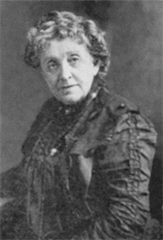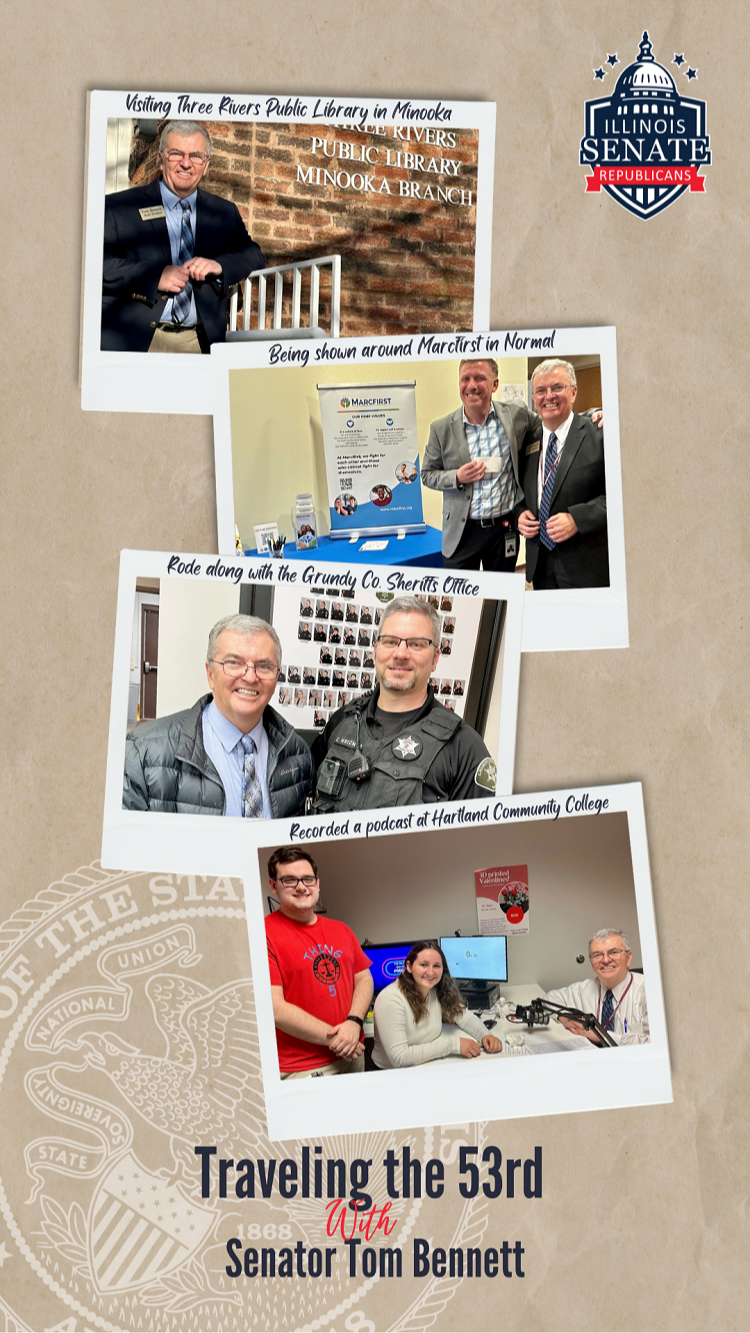 |
| Bennett Passes Trio of Bills to Help Schools Help could soon be coming for schools dealing with a statewide teacher shortage, thanks to a pair of bills filed by State Senator Tom Bennett (R-Gibson City), that have passed the Illinois Senate. “We need our schools to prepare children to be successful adults in an increasingly competitive global economy. To do that, we need quality teachers in the classroom,” said Bennett. “These bills are aimed at making a dent in the teacher shortage that is keeping qualified educators out of the classroom.” Senate Bill 1488 deals with the much-criticized edTPA evaluation for prospective teachers. The standard is currently a requirement for college students studying to become teachers and has been cited by many of them as reason that they gave up on that career path. Many education experts have criticized edTPA as being costly to college students, for taking too much time away from in-classroom training, and for being a poor method of determining the likely success of future teachers. Bennett’s legislation waives the edTPA requirement for two years and creates the Teacher Performance Assessment Task Force to develop a better evaluation system. Senate Bill 1468 would help retired teachers return to the classroom to cover temporary vacancies and to serve as substitutes. The legislation would allow retired teachers to work 120 days or 600 hours in each school year. Bennett was also able to advance legislation to help schools deal with emergencies. Senate Bill 1470 allows districts to utilize remote learning days in place of emergency days, for a total of 5 days per year. The goal is to offer schools another tool to manage emergencies and scheduling issues, while still providing the best education possible for students. “These are all common-sense solutions to help schools do what we expect, which is to get good teachers into classrooms, and to provide a good educational program for the students and families they serve,” said Bennett. All three bills passed the Senate with bipartisan votes and now await action in the House. |
 | |
| Legislation to Keep an Eye On During Final Stretch of Session Lawmakers head back to Springfield next week for the final stretch of the spring session. Despite the many good ideas, proposals, and legislation that have been introduced to help make Illinois a better state to live, work, and raise a family, there are some bills that seem to miss the mark when it comes to what Illinois’ priorities should be. Here are some “not-so-good” bills to keep an eye on during the last few weeks of session. Senate Bill 182: Seeks to limit local control by permitting the Illinois Department of Public Health to control local health departments during a pandemic in which the Governor has issued a Disaster Declaration. Senate Bill 1345: Allows noncitizens of the United States to register to vote in school board elections. Senate Bill 1483: Allows inmates of a correctional facility, including those convicted of a felony, the ability to vote in elections despite the Illinois Constitution stating, “A person convicted of a felony, or otherwise under sentence in a correctional institution or jail, shall lose their right to vote, which right shall be restored not later than upon completion of his sentence.” Senate Bill 2211: Outlaws stores and food businesses from providing or selling a single-use plastic carryout bag to customers. Senate Bill 2348: Requires school districts to provide 20 minutes of relaxation activities per week, such as yoga, meditation, or stretching, in addition to and not replacing recess. | |
 |
| Illinois Gun Ban Law Heard in Federal Court This week, oral arguments began in a federal district court in East St. Louis over the constitutionality of Illinois’ new assault weapons ban law. The case is a consolidation of several lawsuits filed by groups including the Illinois State Rifle Association. On the plaintiff’s side, attorneys argued that the U.S. Supreme Court has recently set the standard for what is considered arms in the Second Amendment, and that semi-automatics are arms in common use and are therefore protected by the Bill of Rights. The Illinois Attorney General representing the State, however, argued that because of technological advancement, the banned firearms are more advanced than what the framers of the U.S. Constitution intended to protect with the Second Amendment. The start of the hearing is timely, as Monday marked the beginning of another phase of the gun ban taking effect. Now, citizens can no longer purchase certain magazines and if found in noncompliance can face a petty offense charge with up to a $1,000 fine. Noncompliant firearms, however, can face a Class A misdemeanor for a first offense and a Class 3 felony charge for subsequent offenses. |
 | |
| Tax Season Comes to a Close If you haven’t already filed your 2022 taxes, now is the time to do so as the deadline is fast approaching. Earners have until Tuesday, April 18 to file both federal and state taxes. As you are preparing your taxes, the Illinois CPA Society is warning of the most common tax-filing mistakes to avoid. One of the biggest mistakes taxpayers can make is in the personal information section. A misspelled name, incorrect Social Security/tax ID number, or forgetting to update a changed direct deposit account can result in delayed acceptance of your return or the IRS rejecting it entirely. This would result in a delayed tax return if you were owed money or a monthly penalty added to your tax bill plus any incurred interest. Additional areas to pay attention to are your income and the credits and deductions sections. If your income does not match what the government has on file, at best the government will request more information from you and at worst you will be fined. Most earned income will generate a form for you to use to prepare your tax returns, however you are responsible for reporting some forms of taxable income on your taxes. Meanwhile, it is often challenging to keep the requirements for credits and deductions straight, so be sure to check through each option closely and provide proof when necessary. One last easily confused area of taxes is investments. Financial institutions are required to provide this information on a regulated form, however, much like personal income there are some investments that are self-reported. Not only should you be careful of underreporting your investments to avoid penalties, but you also need to be aware of which transactions have already been reported so that you are not overreporting on yourself. | |
 |
| How much do we owe? As of the time of this writing, the State of Illinois owes $1,901,615,763 in unpaid bills to state vendors, including 23,712 ending vouchers. This figure represents the amount of bills submitted to the office of the Comptroller and still awaiting payment. It does not include debts that can only be estimated, such as our unfunded pension liability which is subject to a wide range of factors and has been estimated to be more than $139 billion. At the same time last year, the state’s accounts payable stood at just over $2 billion. |
 | |
| Did You Know? When your dishes get dirty at home, you most likely run them through a dishwasher. Today, roughly 68% of American homes have a dishwasher. Every time you let that appliance clean a load of plates and silverware, you have a former Illinois resident to thank for saving you from the tedious work of handwashing. What is considered to be the first practical dishwasher was invented by Josephine Cochran. She was issued a patent for the device in 1883 and founded the Garis-Cochran Manufacturing Company to produce them. It took a while for the device to take off however, because most homes couldn’t provide the amount of hot water required to make it work. After displaying her appliance at the World’s Columbian Exposition in Chicago, her dishwashers became popular in hotels and restaurants. Cochran was born in Ohio, but lived in Shelbyville, Illinois when she developed her dishwasher. She died in 1913 in Chicago. In 1926, her company was purchased by KitchenAid, and in 1949, the new owners introduced a household dishwasher based on her design, which finally became popular in homes starting in the 1950’s. | |
| This Week in the 53rd Senate District |
 |

